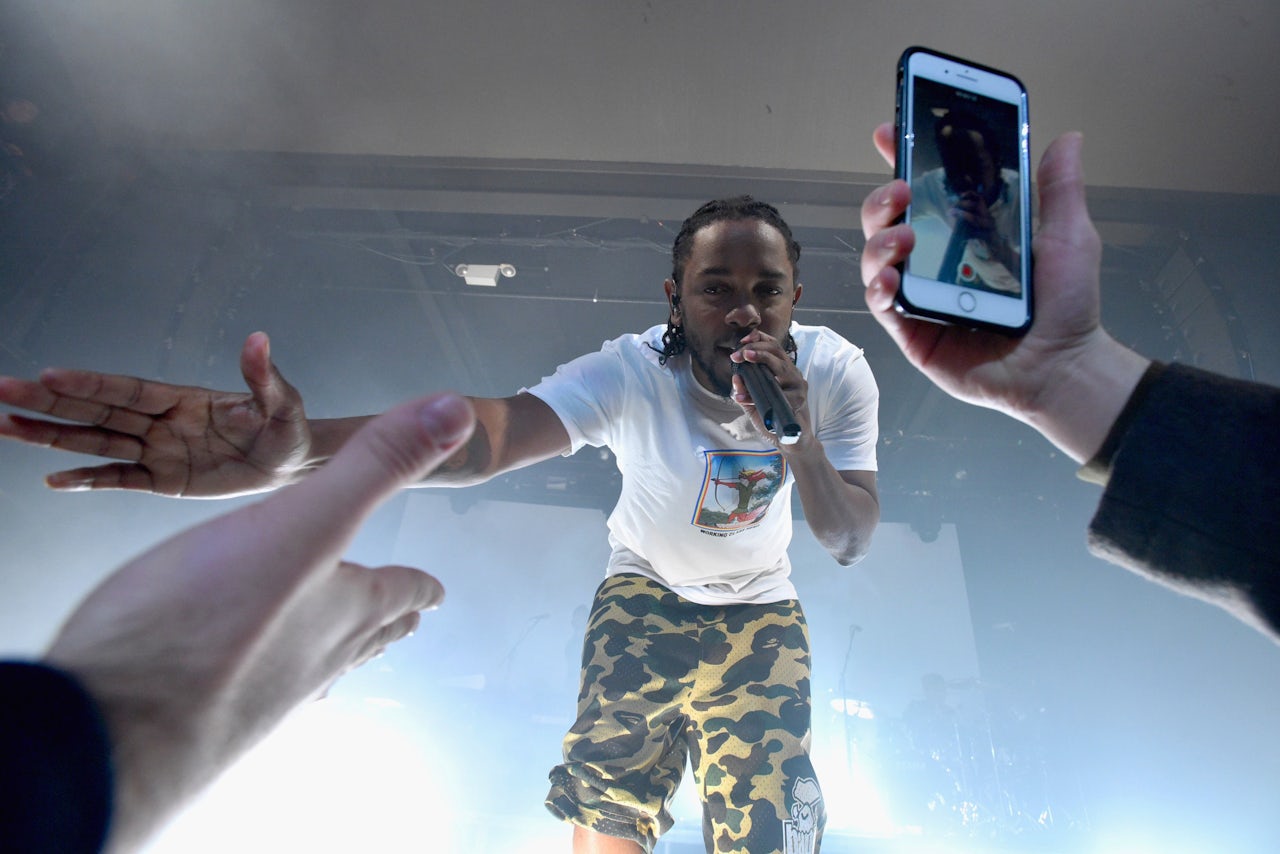In February, a 17-year-old from San Antonio named Christian found himself in a position that many LGBT youth find themselves in each year. After his mother found messages and photos on his phone that revealed him as gay, she kicked him out. “I was shaking and crying, it was so cold,” Christian later [told ]BuzzFeed News. “I had my wifi, so I put on Cupcakke's music because she always cheers me up.” Cupcakke, the Chicago rapper whose playfully raunchy lyrics have made her a rising star, noticed Christian’s tweets to her about the situation. She sent him a message offering to pay for a hotel room if he needed it. “She's the one who helped me stop crying during the scariest night of my life,” Christian said.
Cupcakke has similarly extended help to other fans on Twitter. And she’s not alone; celebrities performing random acts of kindness has emerged as a pop culture trend, yet another example of the ways social media has redefined the ways famous people interact with the public. Stars being charitable is far from novel, but these new iterations involving social media are a new frontier for charitable giving, one that places good deeds directly in the public eye.
Take, for example, Kendrick Lamar. Following a show in Dallas, he gifted a fan who uses a wheelchair with an autographed jacket and a new wheelchair accessible van. The interaction was captured by hip-hop blog VladTV, but the fan quickly chimed in on Vlad’s incomplete representation of Kendrick’s donation. “Hi, I'm ‘Disabled Fan’ lol what you missed is that the autographed jacket said he was buying me a new wheelchair van. Give him his props pls” the fan tweeted. From there, the story caught fire. “A disabled fan's tweet proves Kendrick Lamar is an actual angel,” wrote the website Revelist. “Kendrick Lamar's Surprise to This Disabled Fan Might Just Bring You to Tears,” wrote BET.
Contrast Kendrick’s public good deed with the unpublicized donations given by Beyoncé and Jay-Z to groups like Black Lives Matter, or the revelation that Prince had donated generously to charity throughout his career, keeping it a secret his whole life. While many famous people are involved with a number of different charitable organizations, the person-to-person type of goodness, the instances that appear completely spontaneous, garners the most attention. Foundations with boards and bureaucracies are important, but they can often appear as calculated tax write-offs. By contrast, the trend of viral humanitarianism doesn’t have the sheen of cynical efforts concocted by a PR machine, but it does seem to be an evolution of celebrities’ relationships with their fans and the public. (Representatives for Cupcakke and Kendrick Lamar did not respond to requests for comment.)
Another recent example of a public-facing good deed came from the rapper Meek Mill. Last month, the Philly MC popped up in a viral video giving a homeless man $100, seemingly just because he felt like it. In February, Meek came under fire after video surfaced of him making a homeless man do pushups for $20. “We ain’t going to give out no free money,” he can be heard saying. Somewhere along the line he apparently had a change of heart.
In May, Nicki Minaj took to Twitter to pay off a number of her fans’ student loans, as long as they could send her proof that they were making straight As. "This makes me so happy,” she later wrote in an Instagram post, before pledging to start an official charity to handle more donations. In the realm of sports, Golden State Warriors’ Steph Curry has been on what looks like a spree of charitable activities, surprising a fan on The View, and gifting him, a disabled army veteran, a new house.
Last month the rapper French Montana appeared on The Daily Show to promote his new album, and also to talk about his charitable endeavors. “Is this going to be the new thing in hip-hop?” host Trevor Noah asks. “Guys are going to be bragging — instead of bottles in the club — ‘I got a hospital in Africa.’”
Indeed, social media has made the world more visible in a number of ways, chief among them how it illustrates the gulf in experiences between the fortunate and less fortunate. In the same way that platforms like Instagram and Twitter have served to humanize celebrities, offering glimpses into the mundanity of their everyday lives, it has also increased celebrities’ access to ordinary people.
Perhaps this trend of viral humanitarianism is nothing more than superstars paying it forward, randomly giving people money, or paying their bills, or gifting fans two cars for coming to a show. After all, the overall nature of charity has changed with social media, too. The Ice Bucket challenge turned a viral trend into millions of dollars for ALS research, and platforms like GoFundMe have helped many people pay for everything from medical expenses and home repairs. It makes sense, then, that celebrities are sometimes cutting out the middleman of various foundations and organizations when they’re in a giving mood. Nowadays, helping a fan in a rough spot just takes a DM.
